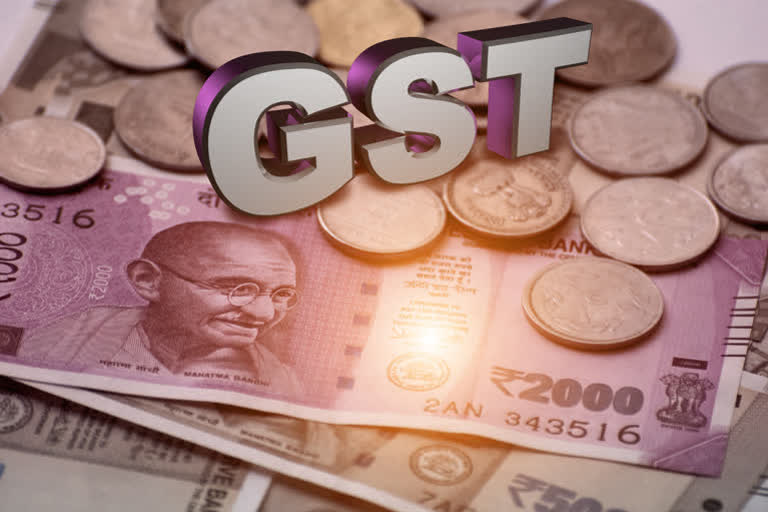New Delhi: Amid a chorus by non-NDA ruled states for compensation of GST revenue shortfall, the Centre on Thursday told states that the estimated deficit of Rs 2.35 lakh crore this fiscal year can be made good by borrowing from the market against future tax revenues.
At the end of a five-hour long meeting of the GST Council, Finance Minister Nirmala Sitharaman said there was no proposal to raise tax rates to make up for the shortfall that has been compounded by the COVID-19 pandemic hitting economic activity.
Citing a legal opinion from the Attorney General, she ruled out the Centre making good the shortfall from either its coffers or by borrowing on its balance sheet.
The Centre also made a distinction between revenue lost due to implementation of the GST and the economic slowdown arising out of the COVID-19 crisis. The government said its legal obligation was only to compensate states for losses arising out of the GST rollout.
The deficit can be made good by states borrowing using a special window, she said, adding this loan can be repaid after five years from the collection of GST cess.
States can borrow about Rs 97,000 crore -- the deficit arising out of GST implementation -- or the entire Rs 2.35 lakh crore, she said.
If states agree to either of the options, it would effectively mean that cess would continue beyond five years of GST rollout.
Meanwhile, Punjab Finance Minister Manpreet Singh Badal said the solution provided by the Centre is not acceptable to the state.
"The solution was thrust upon us saying that the Centre will stand guarantee and the amount will be repaid from the compensation cess which will continue for 2-3 more years. This is not acceptable to Punjab," Badal said, adding the compensation amount due to the state is Rs 6,500 crore.
Read more: "Act of God": Finance Minister links GST shortfall to Covid pandemic
Delhi's Deputy Chief Minister Manish Sisodia said under the existing administrative setup, the Delhi government cannot take a loan from the RBI and the Centre should do so to meet the Rs 21,000 crore deficit.
"The Centre had promised that it will pay GST compensation at the rate of 14 per cent, for five years, in case of revenue shortfall, to the states. But today in the GST Council the Centre refused it, saying there was no provision for compensation in situations like a pandemic," he said.
While the non-NDA ruled states such as Kerala, Punjab and West Bengal had voiced strong opinions about the Centre's obligation to compensate states, Sitharaman said there was no attempt to politicise the GST Council meeting on Thursday.
"There was anxiety that all of us should get compensation," she said. "There was no politicisation, there were worries and worries were addressed in the sense that we were coming up with an option."
But outside, there is obviously an attempt to politicise it, she added.
In 2017, all states agreed to subsume their local taxes such as VAT into the new, nationwide Goods and Services Tax (GST) in return for the Centre promising to make good any loss of revenue in the first five years.
But with the economy slowing down, Rs 70,000 crore shortfall was seen in last fiscal and this year it is estimated to widen to Rs 2.35 lakh crore.
Revenue Secretary Ajay Bhushan Pandey said out of this amount, only about Rs 97,000 crore is attributable to the implementation of GST, while the rest in on account of the coronavirus pandemic.
Pandey, who is also the finance secretary, said while GST collections have been impacted by the pandemic this year, there was a shortfall of Rs 70,000 crore in 2019-20 (April 2019 to March 2020) which was made good from the surplus of the previous two years.
The GST compensation pool has been created by levying cess over and above the GST on luxury and sin goods. This pool generated a surplus in the first two years but had a deficit in FY20 as well as the current fiscal.
Detailing the options presented to the states, Sitharaman said the Centre, in consultation with the RBI, will provide a special window to states to borrow Rs 97,000 crore at a reasonable rate of interest. This money can be repaid after five years from the collection of cess.
The other option is that the states borrow the entire GST compensation gap of Rs 2,35,000 crore through the special window.
The states have seven working days to decide which option they want, she said.
Sitharaman said "the interest from borrowing would be repaid from the cess collected in the years beyond the first five years of GST implementation."
"There will be no additional burden on the states," she said, adding the states have been asked to borrow through the RBI to ensure that they do not rush for the borrowing and there is no hardening of bond yields.
The minister said the GST Council decided that the borrowing arrangement would be for the current fiscal and a review would be done at the beginning of the next financial year.
A detailed note on the two options would be shared with the states and they would give their views on it in seven working days.
The minister said as soon as an arrangement is agreed upon by the GST Council, the Centre will clear the pending bi-monthly compensation. The compensation amount due for the April-July period stands at Rs 1.50 lakh crore.
"This year we are facing an extraordinary situation... we are facing an act of God which might even result in a contraction of the economy, to what percent I am not getting into that.
"Therefore, we said that portion (of compensation) which strictly is hardwired in the (GST) Act, we will arrange, give it to you...," Sitharaman said.
(PTI Report)



